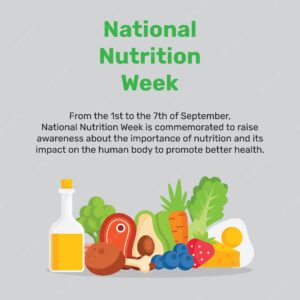## Introduction to cancer-causing foods
Cancer is a formidable enemy that affects millions of people worldwide. While genetics and environmental factors play a significant role in its development, there is increasing evidence that certain foods can also contribute to the risk of cancer. In this article, we will delve into the hidden dangers of cancer-causing foods that may be lurking in your kitchen. By understanding the effects of carcinogens and being aware of the top cancer-causing foods to avoid, you can take proactive steps towards reducing your risk of developing this devastating disease.
Understanding carcinogens and their effects
Carcinogens are substances that have the potential to cause cancer by damaging the DNA within our cells. These substances can be found in various forms, including chemicals, radiation, and certain foods. When we consume carcinogenic foods, they can initiate processes in our body that lead to the development of cancer cells. It is important to note that not all individuals will react the same way to these substances, as genetic factors and overall health also play a role in determining cancer risk.
Top cancer-causing foods to avoid
To minimize your exposure to potential carcinogens, it is crucial to be aware of the top cancer-causing foods and make informed choices. Processed meats, such as bacon, sausages, and hot dogs, have been classified as Group 1 carcinogens by the World Health Organization (WHO). These meats contain nitrates and nitrites, which can react with amino acids in the stomach to form compounds that are known to damage DNA. Red meat, especially when cooked at high temperatures or charred, is also linked to an increased risk of colorectal cancer.
Additionally, it is advisable to limit your consumption of sugary beverages, as they have been associated with an elevated risk of various types of cancer, including breast, colorectal, and pancreatic cancer. The high sugar content in these drinks can lead to weight gain and insulin resistance, both of which are factors that contribute to cancer development. Furthermore, it is recommended to reduce your intake of processed snacks, such as chips, cookies, and cakes, as they often contain trans fats, which are known to promote inflammation and increase the risk of several types of cancer.
The dangers of burnt food and its link to cancer
There is a common misconception that burnt food adds flavor and is harmless to consume. However, the truth is that burnt food can be detrimental to our health, increasing the risk of cancer. When food is overcooked or charred, it produces a compound called acrylamide, which is a known carcinogen. Acrylamide forms when starchy foods, such as potatoes and grains, are cooked at high temperatures. French fries, potato chips, and toast are examples of foods that are particularly high in acrylamide.
To reduce your exposure to acrylamide, it is advisable to cook foods at lower temperatures and for shorter durations. Boiling, steaming, and microwaving are cooking methods that produce fewer acrylamide-forming compounds compared to frying or baking. Additionally, opting for lighter-colored toast and avoiding excessively browned or charred portions can help minimize your intake of this harmful compound.
Debunking myths: Do eggs cause cancer?
Eggs have been a topic of debate when it comes to their potential link to cancer. However, current scientific evidence does not support the notion that eggs cause cancer. In fact, eggs are a nutritious food that provides essential nutrients like protein, vitamins, and minerals. The concern regarding eggs stems from their cholesterol content, but research has shown that dietary cholesterol has minimal impact on blood cholesterol levels for most individuals.
It is important to note that moderation is key, as excessive consumption of any food, including eggs, can lead to an imbalance in the overall diet. As part of a balanced and healthy diet, eggs can be enjoyed without concerns about their cancer-causing potential. However, individuals with specific health conditions or dietary restrictions should consult with a healthcare professional for personalized advice.
Identifying hidden carcinogens in vegetables
Vegetables are an essential component of a healthy diet, providing a wide array of vitamins, minerals, and antioxidants. However, it is important to be aware of potential hidden carcinogens in certain vegetables. One example is the presence of aflatoxins in peanuts, corn, and tree nuts. Aflatoxins are naturally occurring toxins produced by certain molds that can contaminate these foods if they are not stored properly. Long-term exposure to aflatoxins has been linked to an increased risk of liver cancer.
To minimize your exposure to aflatoxins, it is advisable to purchase nuts and grains from reputable sources, store them in a cool and dry place, and discard any moldy or discolored specimens. Additionally, cruciferous vegetables like broccoli, cauliflower, and cabbage contain naturally occurring compounds called glucosinolates. While these compounds have anticancer properties, they can also form harmful substances called nitrosamines when cooked at high temperatures. To reap the benefits of cruciferous vegetables without the potential risks, opt for steaming or lightly sautéing them instead of high-temperature cooking methods.
The importance of a balanced and healthy diet for cancer prevention
Maintaining a balanced and healthy diet is paramount for cancer prevention. A diet rich in fruits, vegetables, whole grains, and lean proteins provides the necessary nutrients and antioxidants that support the body’s natural defense mechanisms against cancer. Moreover, consuming a variety of foods ensures a diverse intake of essential vitamins, minerals, and phytochemicals, which have been shown to have protective effects against cancer.
Incorporating colorful fruits and vegetables into your meals can provide a wide range of antioxidants, such as beta-carotene, vitamin C, and lycopene. These antioxidants help neutralize free radicals and reduce oxidative stress, which can contribute to the development of cancer. Whole grains, such as brown rice, quinoa, and whole wheat bread, are excellent sources of fiber and other beneficial compounds that promote digestive health and lower the risk of colorectal cancer.
Tips for reducing exposure to cancer-causing foods
While it may be challenging to completely eliminate cancer-causing foods from your diet, there are practical steps you can take to reduce your exposure. Firstly, opt for fresh and minimally processed foods whenever possible. Processed and packaged foods often contain artificial additives and preservatives that may have carcinogenic properties. By cooking meals at home using fresh ingredients, you have better control over the quality and composition of your meals.
Secondly, practice safe food handling and preparation techniques. Properly washing fruits and vegetables can help remove pesticide residues, reducing your exposure to potential carcinogens. Additionally, avoiding cross-contamination between raw meats and other foods can minimize the risk of bacterial infections that may lead to stomach and colorectal cancers.
Lastly, maintain a healthy weight and engage in regular physical activity. Obesity has been linked to an increased risk of various types of cancer, including breast, colorectal, and pancreatic cancer. By adopting a balanced diet and incorporating exercise into your daily routine, you can maintain a healthy weight and reduce your risk of cancer.
Seeking professional advice for dietary changes
Making significant dietary changes can be a daunting task, especially when it comes to cancer prevention. If you have concerns about your diet and its potential impact on cancer risk, it is advisable to seek professional advice. Registered dietitians and nutritionists can provide personalized guidance based on your individual needs and health status. They can help you create a well-rounded and nutritious meal plan that aligns with your goals of reducing cancer risk.
Additionally, it is important to communicate with your healthcare provider regarding any dietary changes you plan to make. They can offer valuable insights and ensure that your dietary modifications are compatible with any existing health conditions or medications you may be taking.
Conclusion: Empowering yourself with knowledge to make healthier choices
In conclusion, the hidden dangers of cancer-causing foods can be unveiled by understanding the effects of carcinogens and being aware of the top foods to avoid. By avoiding processed meats, sugary beverages, and processed snacks, you can reduce your exposure to potential carcinogens. Additionally, being mindful of burnt food and its link to cancer, debunking myths surrounding eggs, and identifying hidden carcinogens in vegetables can further empower you to make healthier choices.
Remember, a balanced and healthy diet is crucial for cancer prevention. Incorporating a variety of fruits, vegetables, whole grains, and lean proteins into your meals provides essential nutrients and antioxidants that support your body’s natural defense mechanisms against cancer. By following these guidelines, seeking professional advice when needed, and making informed dietary decisions, you can take proactive steps towards reducing your risk of cancer and promoting overall well-being.
For more information on proven cancer-causing foods and items to avoid, refer to the Times of India article.




